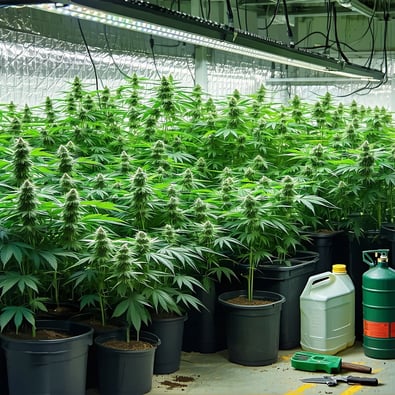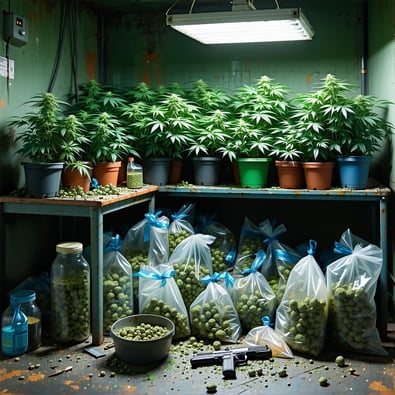OCEANSIDE — A South Morro Hills hemp grower has asked the city for permission to switch to growing cannabis.
South Morro Hills 47, LLC, which currently holds a cannabis cultivation local license, applied earlier this year for a conditional use permit to operate at 1319 Sleeping Indian Road.
Since at least the 1960s, the property has been used for various agricultural purposes. The Campbell family took over farming the land in 1994, and hemp is currently being cultivated on-site.
The request, if approved by the city, would switch the hemp currently grown in the site’s hoop houses over to the new cannabis crop.
Currently, the business is authorized by the County of San Diego’s Department of Agriculture, Weights and Measures to breed and cultivate industrial hemp, and permitted to sell hemp seeds, flower and biomass for processing. The issue, however, is that the business is prohibited from selling its product within the state due to Gov. Gavin Newsom’s emergency ban on intoxicating hemp products, which went into effect last fall.
“As a result, we primarily sell our product to out-of-state facilities, which generates little to no revenue for the state or for the city of Oceanside,” South Morro Hills 47 states.
In a letter sent to the city, Campbell indicated that if the city grants the conditional use permit to cultivate cannabis, he could keep the property in the family and ensure that farming stays in South Morro Hills.
Over the 31 years that the Campbell family has owned the property, they have been forced to downsize their avocado and ornamental flower business due to drought, rising water costs, high property taxes, Mexican fruit and flower imports, and “other external factors beyond our control,” Campbell said. The family currently only farms on 25 of the 142 acres, seeking other tenants to work the rest in the meantime.
According to South Morro Hills 47, the Campbell family could obtain higher lease rates from cannabis cultivation.
Campbell added that the family business would not survive without the new cannabis crop, and could be forced to sell its land to potential developers down the road.
South Morro Hills 47 noted that the surrounding community “has clearly expressed a preference for maintaining the area’s historic agricultural charm rather than allowing for dense residential developments.”
“Our agreement and 25-year lease with Campbell Farms will ensure that the property remains designated for agricultural use,” South Morro Hills 47 said in a letter, adding that the city would also benefit from cannabis taxes, which would “far exceed those from the hemp crop.”
The application also requests an exemption from the California Environmental Quality Act, a state law that identifies a proposed project’s potential environmental impacts, because of the site’s approximately 60-year history of agricultural uses.
According to the applicant, the cannabis cultivation project is in line with the city’s ordinance on cannabis cultivation, the specific goals of the South Morro Hills agricultural district and the city’s General Plan.
The hoop houses are bordered on the north and west by Armstrong Growers’ flowering hoop houses and open flower fields, to the south by Campbell Farms’ soil and rock processing area and the Agromin Corporation compost processing area, and to the east by the Campbell Farms’ livestock area.
The project is also “far greater than thousands of feet” away from sensitive uses including schools, day cares or churches, South Morro Hills 47 said.
“These surrounding conditions mitigate any minor odor emissions from our site,” the applicant states. “To date, the project has not produced dust, smell, noise or view offensive to any of the surrounding properties … The transition between two similar products will not affect public health, safety, or general welfare.”
The applicant noted that it can be challenging to distinguish the difference between hemp and cannabis because they belong to the same family and have similar-looking buds and scents; however, the key difference lies in their THC content. Hemp is currently defined as a cannabis plant that contains up to 0.3% THC, while cannabis contains more.
According to Dane Thompson, the city planner overseeing the project, the business would apply for an operational business license if the conditional use permit is approved.





